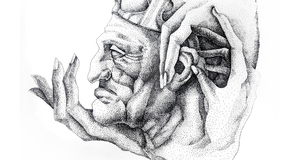From Discussions VOL. 9 NO. 2"Irreversibility" and the Modern Understanding of DeathETHICAL INFLUENCE ON IRREVERSIBILITY IN BRAIN-DEAD RESEARCHAlthough Tomlinson and Lizza effectively show the ambiguity and flaws in Cole’s argument, they rely too much on ethics and availability in the determination of irreversibility, as shown by the DNR dilemma and the availability dilemma. In using the Tomlinson and Lizza model and the Bernat model, conditional criteria arise in the determination of death, where they allow personal wishes to precede medical diagnosis such that patients are declared dead based upon their personal wishes and not upon medical fact. Death, however, is not a conditional situation, nor should it be approached as one. Scientific advancements have increased our precision in finding the moment of death. These advancements have led to the acceptance of much of the previously-discussed research on brain-dead patients. Using ethical considerations to define death not only reverses this process, but also can confuse families, doctors, and others involved. If an individual is not dead in accordance with modern medical criteria but only by ethical consideration, is it then ethically acceptable to procure organs from or research on that “heart-beating cadaver”? Furthermore, physicians and researchers who take part in such procedures are interested in the certainty of the absolute, irreversible death of their patients before they proceed with organ procurement or experiments. If a patient were not absolutely and irreversibly dead, then brain- dead research on that patient would easily be equated with euthanasia. When a patient agrees to be the subject of an experiment following brain death, they do so on the condition that their death is determined to be irreversible before the experiment begins. That is, irreversibility is the given condition of the ethical permission of the patient. Thus, the irreversibility of the patient’s condition (brain death) must be determined by modern medicine first before the ethical considerations are examined. Therefore, it is impossible for ethical considerations to have any role in the determination of irreversibility if irreversibility must be determined before the ethical decisions are given any weight. It is important to note that it is not being suggested that ethical considerations should be ignored or that DNR orders are insignificant. Rather, it must again be acknowledged that such considerations are only permitted by modern medicine. There should be a difference between (1) being meeting the criteria for (physical, actual, whatever) death, and (2) being allowed to remain dead because of ethical considerations or the availability of medical treatment. In the latter case, we have the ability to reverse death but we will not; thus, while the patient’s condition may be reversible, the patient is not yet dead but should be allowed to become irreversibly dead. CONCLUSIONAs science and technology improve, medical advancements have allowed us to more precisely measure death. Due to these advancements, questionable and previously uncharted medical situations, including “do not resuscitate” orders, organ procurement and donation, and research on brain-dead patients, have arisen. Furthermore, these situations have led to efforts to regulate the ethics of these medical practices as well as measure the irreversibility of death. The proper process for determination of irreversibility requires that we first consider modern medicine, because medical advancements carried us down the slippery slope to research on the brain-dead and other ethically-questionable situations. Our ability to conduct brain dead research today was built on the back of medical advancement. Thus, modern medicine, which lies at the foundation of our protocols and procedures today, must be considered first in the diagnosis of irreversibility in brain death. Ethical considerations and availability, when used in conjunction with medical protocol to diagnose death, lead to conditional definitions of death, with conditional definitions like “permanence” rather than absolute definitions involving “irreversibility.” Therefore, ethics and availability should not be included in the criteria for death. Instead, they should be considered after modern medicine has declared a given condition irreversible. AcknowledgementsI would first like to thank Dr. Michael Rees, my advisor in completing this project, whose passion and commitment to educating and mentoring students is exemplary and unparalleled. It was his interest in bioethics and his commitment to his own research that inspired this project. I would also like to thank Dr. Walter Edinger, whose expertise in ethics, philosophy, and exposition lead to great conversation and served as an essential resource in properly constructing this paper. Lastly, I would like to thank Dr. Stuart Youngner for both his advice and his willingness to meet with me to discuss this paper and other areas of bioethical interest. ReferencesBernat, J. L. (2010). How the Distinction between “Irreversible” and “Permanent” Illuminates Circulatory– Respiratory Death Determination. [Article]. Journal of Medicine & Philosophy, 35(3), 242-255. doi: 10.1093/jmp/ jhq018 Bernat, J. L., Culver, C. M., & Gert, B. (1981). On the Definition and Criterion of Death. [Article]. Ann Intern Med, 94(3), 389. Bresnahan, M. J., & Mahler, K. (2010). ETHICAL DEBATE OVER ORGAN DONATION IN THE CONTEXT OF BRAIN DEATH. [Article]. Bioethics, 24(2), 54-60. doi: 10.1111/j.1467-8519.2008.00690.x Carson R.A., F. J. L., Melker R.J. (1981). Research with brain- dead children. IRB, 5-6. Cole, D. J. (1993). Statutory Definitions of Death and the Management of Terminally Ill Patients Who May Become Organ Donors after Death. Cole, D. J., & Lamb, D. (1992). Symposium on Death: The Reversibility of Death--Comment/Reply. Journal of Medical Ethics, 18(1), 26-26. Coller B.S., S. L. E., Berger H.j., Iuliucci J.D. (1988). Inhibition of human platelet function in vivo with monoclonal antibody. Annals of Emergency Medicine 109, 635-638. DeFrias C., D. F. B., Martinez A.P., Mestres C.P. (1980). Inappropriate secretion of antidiuretic hormone and the effect of lithium on its treatment. Journal of Pediatrics, 96, 153-155. DeVita, M. A., Wicclair, M., Swanson, D., Valenta, C., & Schold, C. (2003). Research involving the newly dead: An institutional response. [Article]. Critical Care Medicine, 31(5), S385-S390. Downar, J., Luk, T., Sibbald, R. W., Santini, T., Mikhael, J., Berman, H., & Hawryluck, L. (2011). Why Do Patients Agree to a ‘Do Not Resuscitate’ or ‘Full Code’ Order? Perspectives of Medical Inpatients. [Article]. JGIM: Journal of General Internal Medicine, 26(6), 582-587. doi: 10.1007/ s11606-010-1616-2 Gardiner, D., & Sparrow, R. (2010). Not Dead Yet: Controlled Non-Heart-Beating Organ Donation, Consent, and the Dead Donor Rule. Cambridge Quarterly of Healthcare Ethics, 19(1), 17-26. doi: 10.1017/s0963180109990211 Harley, C. P. a. D. (1983). ABC of Brainstem Death (second ed.). Tavistock Square, London BMJ Publishing Group. Jonas, H. (1974). Against the stream : comments on the definition and redefinition of death. Defining the Beginning and End of Life: Readings on Personal Identity and Bioethics. Lizza, J. (2005). Potentiality, Irreversibility, and Death. [Article]. Journal of Medicine & Philosophy, 30(1), 45-64. doi: 10.1080/03605310590907057 Pentz, R. D., Flamm, A. L., Pasqualini, R., Logethis, C. J., & Arap, W. (2003). REVISITING ETHICAL GUIDELINES for Research with Terminal Wean and Brain-Dead Participants. [Article]. Hastings Center Report, 33(1), 20-26. Research,P.s.C.f.t.S.o.E.P.i.M.a.B.a.B.(1981).1981. Washington, D.C.: US Government Printing Office School, A. H. C. o. t. H. M. (1968). A Definition of Irreversable Coma: Report of the Ad Hoc Committee of the Harvard Medical School to Examine the Definition of Brain Death. JAMA, 252(5), 3. Tomlinson, T. (1993). Irreversibility of Death: Reply to Cole. Kennedy Institute of Ethics Journal(June 1993), 9. Watson, D. N. (1980). Brain Death Ethical Considerations (Vol. 5). Purdue University Science and Society: A Purdue University Series in Science, Technology, and Human Values. Wicclair, M. R. (2008). Ethics and Research w i t h Deceased Patients. Cambridge Quarterly of Healthcare Ethics, 17(1), 87-97. doi: 10.1017/s0963180108080092 Wijdicks, E. F. M. (2012). The transatlantic divide over brain death determination and the debate. [Article]. Brain: A Journal of Neurology, 135(4), 1321-1331. Yasko, L. L., Wicclair, M., & DeVita, M. A. (2004). Committee for Oversight of Research Involving the Dead (CORID): Insights from the First Year. Cambridge Quarterly of Healthcare Ethics, 13(4), 327-337. doi: 10.1017/s096318010413404x Youngner, S. J., & Arnold, R. M. (2001). Philosophical Debates About the Definition of Death: Who Cares? [Article]. Journal of Medicine & Philosophy, 26(5), 527-537.
Suggested Reading from Inquiries Journal
Inquiries Journal provides undergraduate and graduate students around the world a platform for the wide dissemination of academic work over a range of core disciplines. Representing the work of students from hundreds of institutions around the globe, Inquiries Journal's large database of academic articles is completely free. Learn more | Blog | Submit Latest in Philosophy |



















